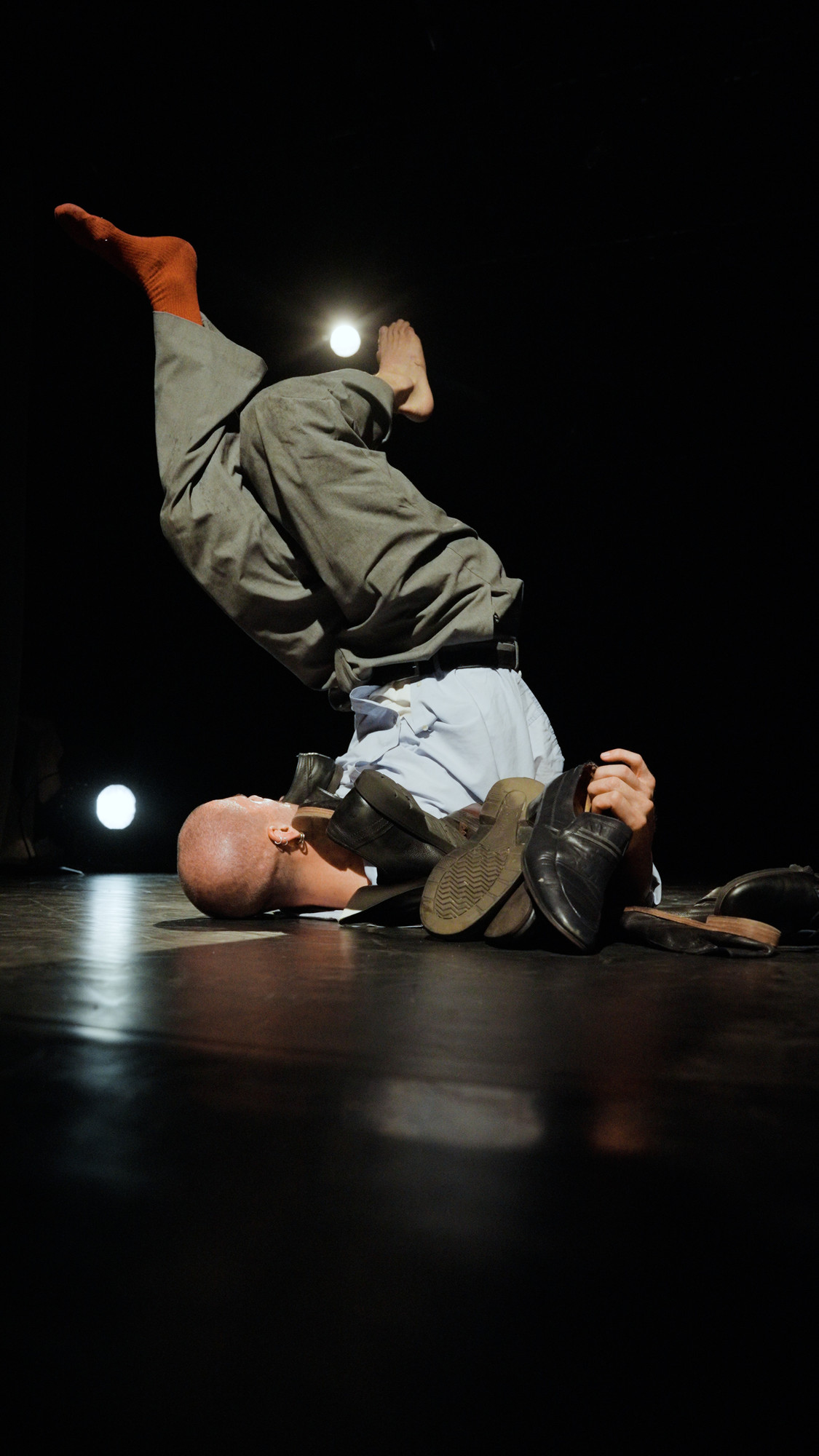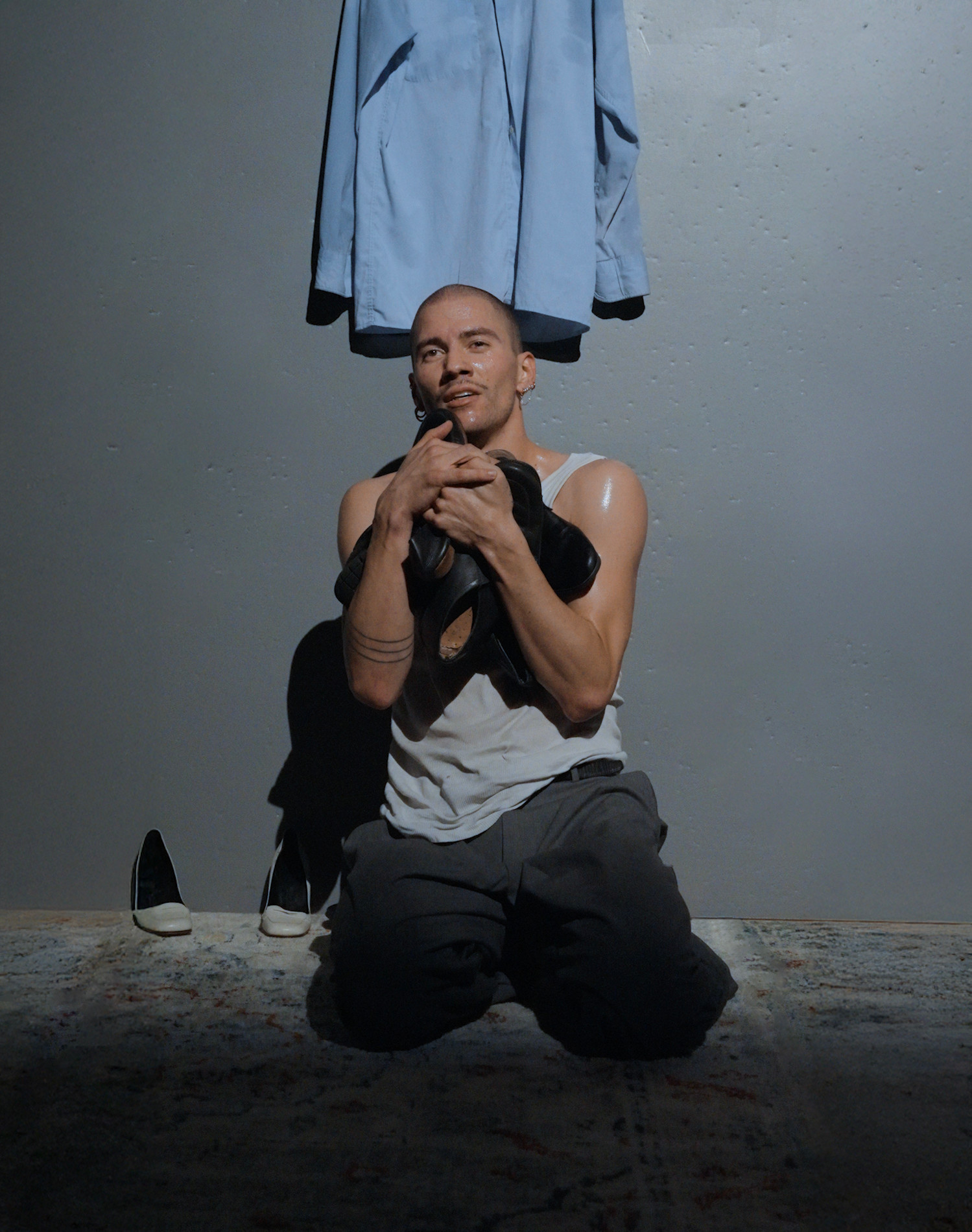24.11 - 30.11
Residency is organised in collaboration with Stora Teatern, Gothenburg.
During this residency, choreographers from French dance company Dyptik will work on a new solo piece Tfou Aalik, performed by French-Lebanese dancer Yohann Hebi Daher. The residency will culminate with an informal showing on Saturday, 29 November at 18.00.


The Choreogprahers of Dyptik
Souhail Marchiche and Mehdi Meghari are Hip-Hop choreographers. Together, they run Dyptik, a name they chose for very symbolic, meaningful reasons.
Separately although already together, they discovered Hip-Hop dance and never gave it up. They danced and battled within collective groups until they found each other, tamed each other, and entered into a companionship.
Today, they have trust in their artistic twinning. They say they understand each other before words even arise, embracing a co-writing process where each of them takes his place depending on the project. They thus question the world from the same places. Naturally. That is how a duo works.
When you talk with one or the other, or both, some words will inevitably invade the conversation: exchange, sharing, collective, team, observation, questioning, others, elsewhere…
They both stand up for Hip-Hop in the plural form. They are in the street, they are on stages. They have created a festival to reveal young authors, and in order to keep mixing their dancing practice, they have traveled the world to meet Malagasy, Malian, and Palestinian dancers, with different conceptions of Hip-Hop…
The New Talent Choreography Award (Nouveau Talent Chorégraphie) was awarded in 2019 to Mehdi Meghari and Souhail Marchiche, a duet of curious, greedy, insatiable, revolted, effervescent authors who built a highly relevant work in an ever so impertinent way.
More about Dyptik: https://www.dyptik.com/en/
The Dancer Yohann Hebi Daher
After a childhood in Lebanon, Yohann Hebi Daher discovered dance in France in 1999. He started training in Paris with Bad Trip Crew in 2002, and he later joined the Juste Debout School, from which he graduated in 2013. His dialogue, initially rooted in hip-hop, was subsequently enriched through various discussions. He joined Jean-Charles Gil’s Ballet d’Europe and worked with choreographers such as Ibrahima Sissoko, Marion Motin, Alexandra Lacroix, Mehdi Kerkouche, Souhail Marchiche, Mehdi Meghari, and others. Yohann Hebi Daher likes to discuss, about and with his body. To do so, he wanders between words and writes through dance, photography, and graphic arts. His experiences and encounters have led him to become part of a generation of dancers and choreographers without labels, enjoying stage as well as battles, or show business and fashion scenes.
In 2015, a rich artistic and human relationship began with Cie Dyptik, starting with the performance D-Construction. Since then, no fewer than five new pieces have been created, which he has been actively involved in, and several world tours have taken place. Beyond developing his technique, this collaboration has led him to create and teach within the company, whether in the development of new shows, the management of new dancers, or through cultural mediation in social and educational areas. A relationship of trust that highlights the performer and also traces his path towards choreography.
Fascinated by non-verbal communication, his work delves into the subtle, often unseen violences of societal systems. Picturing the limits of customs, he seeks to observe the unsuspected but no less great responsibility that we bear in our interactions — the impact, influence, and reach of gestures and words on our trajectories. Also a filmmaker, Yohann Hebi Daher loves how our physiques meet in the complexity of this social and psychological system, and it is this observation, like the diversity of his encounters, that enriches a vision — a multidisciplinary approach, a virtuous and constantly evolving discussion.
More about Yohann Hebi Daher: https://www.yohannhebidaher.com/
Tfou Aalik
A father walks, builds, promises — a hero of a castle he empties without ever seeing it.
As the armor cracks, doubt seeps in; the body wavers, dances, unravels.
Through his memories of Lebanon, Yohann Hebi Daher explores, in a broader sense, the figure of the father — and the man who searches for himself amid the ruins of his own making.